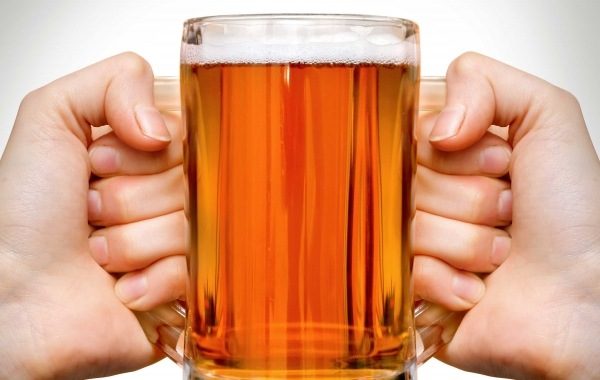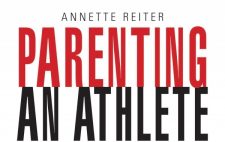It’s a hot topic on the streets of Moorestown – one that has long-time residents and newcomers at odds over just how much change to bring to a town steeped in tradition.
Swirling in the center of the battle is the Moorestown Mall, whose owners say they can reinvent the monstrous property if voters allow them to secure high-end restaurants with the promise of a liquor license. Next month, voters will decide whether to approve the sale of alcoholic beverages in their town. The election will mark the second time in less than five years that voters have been queried on the issue. And in the time since, the arguments have only intensified.
In 2007, voters defeated a general liquor sales question by a tally of 62 to 38 percent, but one of two questions up for vote this time around would restrict the sale of alcohol to restaurants at the Moorestown Mall. The first question would permit the sale of alcohol in the town “except for consumption on railroad trains, airplanes and boats.”
The questions are the result of two petitions filed by associates from Pennsylvania Real Estate Investment Trust (PREIT), the owner of Moorestown Mall, as well as other SJ shopping destinations, including the Cherry Hill Mall and Voorhees Town Center. More than 1,200 local residents signed the petitions, which surpassed the 1,060 signatures from registered voters needed to get the referendum on the ballot.
“Opinions have evolved a lot since 2007, especially with the downturn in the economy,” says Seth Broder, a former member of the town council and a member of the pro-referendum citizens group Taxpayer Relief for Moorestown. “I’m a taxpayer, and I’ve seen taxes increase like other people in town. We’re in a different world now. Raising fees to get a dog license and marriage license isn’t going to cut it.”
According to Joe Coradino, PREIT president, the referendum “is an opportunity to drive success at Moorestown Mall and the entire town.”
Based on the success of upscale dining establishments, such as Seasons 52 and The Capital Grille at the Cherry Hill Mall, Coradino feels certain that high-end restaurants serving liquor will draw the crowds the Moorestown Mall needs to succeed. “Restaurants are the new anchors in malls. They produce as much sales volume as a department store. Cherry Hill Mall is the best example,” he says.
A number of well-known, established restaurants have already shown interest in leasing space at the mall ahead of the possibility of the referendum being approved in the November election, says Coradino. Combined with new retail stores and a new 12-screen movie theater, he says Moorestown Mall “can define itself as a family entertainment and dining destination that local residents can be proud of. Families can go see a movie, have a lovely dinner and stroll through the nice new shops. It’s also an obvious way to deal with the fiscal problems we’re facing.”
Tax records show that Moorestown Mall is the largest single taxpayer in Moorestown. In 2010, PREIT paid more than $2.2 million in property taxes on the mall, with more than $362,000 going to the municipal budget and approximately $1.385 million going to local schools. However, more than 25 stores currently stand vacant in the mall.
PREIT has estimated the sale of liquor licenses at the mall would generate a one-time influx of $4 million for the town through the sale of four liquor licenses at $1 million each. Renewal fees would cost $2,500 per year, and the property would also generate $500,000 a year in property taxes through increased real estate values, according to Coradino.
“If the mall continues to decline, it will affect all of us in town,” says Broder. “The Moorestown Mall plays a major economic role in our community. We all benefit if the mall succeeds. If not, we will all feel the bite of that. This is not a political issue, it’s strictly an economic issue, and voting yes in the election is a no-brainer.”
Other Moorestown residents aren’t so sure. Those opposed to the referendum have spoken out against the measure both publicly and online, where hundreds of comments have been left after each news update has been published.
Bill Cox, a local resident who has been vocal in his opposition, argues that “Moorestown has been dry for almost 100 years. The mall has operated without a liquor license for almost 50 years, through the fire and several recessions, owners and remodelings. The current owner bought the mall in 2003 knowing they couldn’t sell liquor there. As is their right, they brought this issue up four years ago. The referendum was soundly defeated. Now they want to bring it up again, a year before they are permitted to by law. That isn’t right.”
Cox is referring to the five-year moratorium that prohibits asking voters to decide on the same ballot question. Those opposed to the referendum have argued the questions that will be posed in November are essentially the same ones asked back in 2007, making the initiative invalid. Those on the other side of the fence contend that the questions have been reworded, causing them to fall under a different section of the state liquor law and thus allowing them to be asked again before the five years have passed.
There has also been much speculation over the exact location where alcohol-serving restaurants would be allowed to operate in Moorestown. “Some people out there are afraid that the referendum would allow liquor to be sold on Main Street or that it will allow packaged goods to be sold. That’s not true and is simply a case of misinformation,” says Coradino. In fact, he says, law forbids the sale of liquor within 200 feet of a church or school, essentially ruling out the possibility of liquor being sold on Main Street, thanks to its abundance of both. The referendum would not allow the sale of packaged goods either.
“Basically, I think people are so polarized about the issue because they don’t understand the facts behind the referendum,” says Coradino. “PREIT, along with members of the Taxpayer Relief for Moorestown group, are here to communicate with residents and provide a transparent look at the facts. We plan to meet with voters in the coming weeks to further educate them, answer questions and dispel rumors.”
The Dry Spell Continues in Ocean City
After an intense summer of heated arguments over the liquor laws in Ocean City, those in favor of allowing BYOB dining in the shore town are feeling dry after the proposal was pulled from the November ballot. Ocean City hasn’t allowed liquor sales or BYOB establishments since it was founded as a conservative, seaside retreat in 1879 by Methodist ministers.
 Petitioners sought to allow BYOB customers, limiting them to one 750 ml bottle of wine per person or a six-pack of beer for two people. However, they say they removed the proposal because of a state statute that wouldn’t allow businesses to regulate the amount of alcohol diners could bring to a restaurant. City officials threatened a lawsuit over the language, claiming that it exceeded the city’s authority over alcohol.
Petitioners sought to allow BYOB customers, limiting them to one 750 ml bottle of wine per person or a six-pack of beer for two people. However, they say they removed the proposal because of a state statute that wouldn’t allow businesses to regulate the amount of alcohol diners could bring to a restaurant. City officials threatened a lawsuit over the language, claiming that it exceeded the city’s authority over alcohol.
Opponents of the measure have said that allowing alcohol would be a significant break with tradition and could hurt Ocean City’s image as a wholesome, family-friendly vacation spot.
Supporters of the BYOB proposal, including the Ocean City Restaurant Association, contend that allowing customers to bring their own beer and wine into local eateries would help the restaurants compete with establishments in nearby towns that have liquor licenses or allow BYOB. They hope to get the state statute changed and put the BYOB question in front of voters in May 2012.














